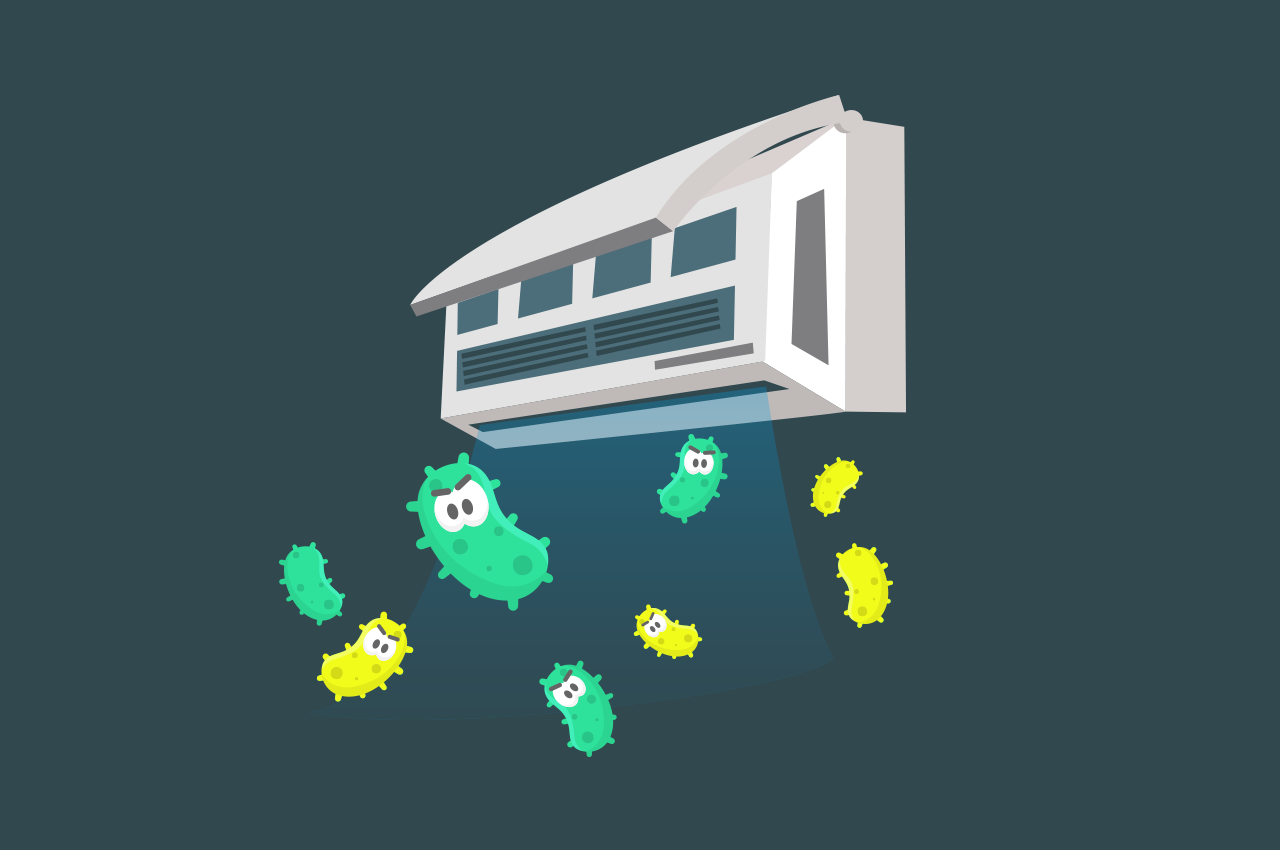On a scorching hot day, a cool blast from the air conditioner feels glorious. But there’s a catch. If the AC hasn’t been well-maintained, then the breeze could carry germs too.
Unlike heating systems, the process of cooling hot air creates lots of moisture and condensation, which must be filtered out. If it isn’t filtered properly by the AC, thanks to inadequate maintenance, for example, the units may become infested with health-harming bacteria and fungi.
Health hazards
Mould growth
When air is cooled inside an air conditioner, moisture is created. It’s the machine’s job to get rid of the excess moisture through a vent. If the ventilation system isn’t working properly, or if you don’t empty the water pan regularly, it becomes the perfect breeding space for mould. Mould can set off health problems as it circulates in the air. Watch out for symptoms like coughing, wheezing, and eye and skin irritation.
Fluctuations in temperature
The human body is usually easily able to adapt to changes in temperature. This means that moving from being outdoors to an air-conditioned indoors isn’t much of a problem. However, if you have a health condition like diabetes, adjusting to different temperatures can be difficult.
Low humidity
Air conditioners reduce the humidity inside your home by absorbing moisture from the air. Although this is helpful during sweaty days, it can be hazardous too. Low humidity could contribute to the risk of health problems like sinus, congestion and inflammation.
Nippy air
Yes, the point of an AC is to cool you down but if you keep things too cold, it ups your risk for viral infections like colds and flu. These viruses thrive in low humidity and cold environments. What’s more, extremely cold temperatures make the arteries in your skin constrict to protect your body from losing heat. This makes it difficult for blood to flow and particularly, white blood cells, which are what protect your body from illnesses. Being exposed to very cold environments can also cause extreme shivering. This can leave you with symptoms such as sore muscles, fatigue and headaches.
Heat intolerance
Have you ever noticed that it can feel uncomfortable being outside after sitting in an air-conditioned office all day? If the weird feeling escalates to discomfort, it may be heat-intolerance. This can cause symptoms such as dizziness, headaches and breathing difficulties. In severe cases, heat intolerance can cause a heat stroke.
Keep cool and safe
- Clean or replace the unit filters regularly. Keep up to date with the manufacturer’s timelines.
- Have a technician check your air conditioner once a year.
- Turn the AC down or off when no-one’s home. This helps minimise harmful particles from circulating in the air.
- Fresh air is important to reduce harmful indoor pollutants. Open your windows and turn off the air conditioning at least once a day to ventilate your home.
References:
- https://atlascare.ca/is-air-conditioning-bad-for-you-the-essential-facts-on-the-health-effects-of-air-conditioning/
- http://time.com/3942050/air-conditioner-healthy/
- https://www.health24.com/Lifestyle/Healthy-workplace/can-the-air-conditioner-make-you-sick-20180606-2
- https://mooreheating.com/air-conditioning-can-make-you-sick-heres-how-to-avoid-it/

